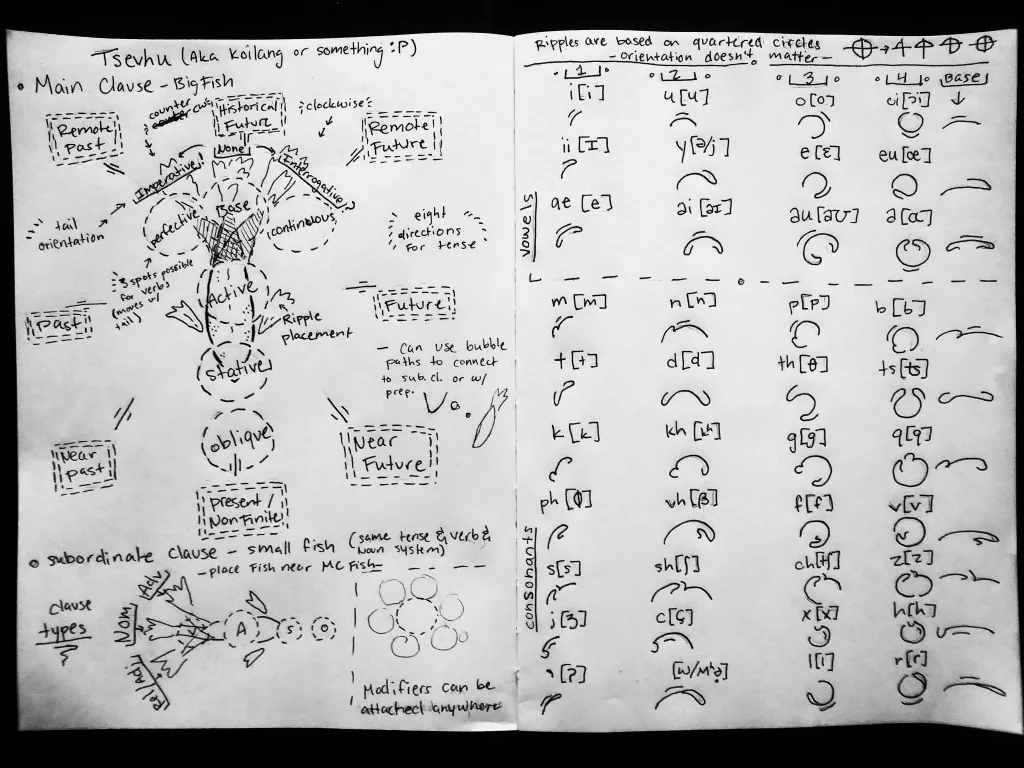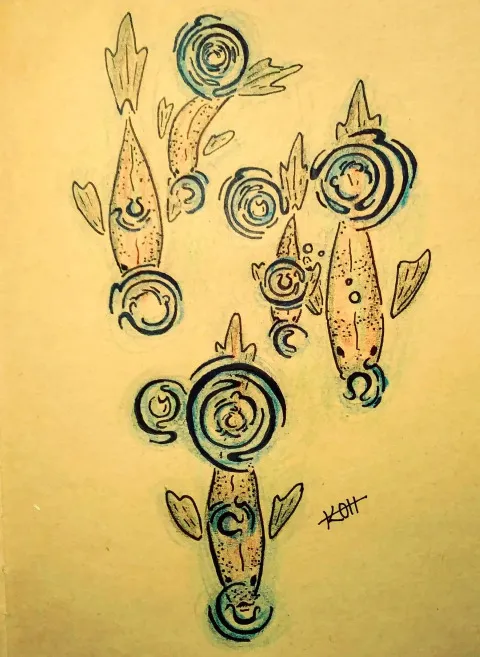Tsevhu is a constructed language which is written with fish-like glyphs rather than Latin letters.
Disclaimer: I only sort of understand how Tsevhu works, so my explanation of the grammar is probably partially inaccurate.
Translation
According to the inventor of Tsevhu, Koa Vhukva, the fishes in the image above translate to:
When I traveled the world, I traveled lonely. A desolate landscape scraped my view, A dead thing to keep me company. I wandered because it was the only thing left to do. When I found you, you were in stasis, frozen for more than a century asleep, delicate in all your graces, and I felt all my years telling me to wake you.
This is a lovely little poem, but what’s interesting is how it’s encoded with fish.
Grammar

Clauses
Basically, each fish represents a clause. If you don’t know what a clause is, you can think of it as a sentence (it’s not but whatever)
The fish’s orientation represents one of the eight tenses:
| Orientation | Tense |
|---|---|
| Northwest | Remote past |
| North | Historical Future |
| Northeast | Remote Future |
| East | Future |
| Southeast | Near future |
| South | Present |
| Southwest | Near past |
| West | Past |
The base of the tail indicates verb type (base, perfective, continuous).
The tip of the tail indicates clause mood (declarative, interrogative, imperative).
There are also smaller fish that represent subordinate clauses, but that’s beyond the scope of this explanation.
Morphemes
The floating ripples around each fish represent Morphemes, which are basically individual concepts. Morphemes are somewhere in between letters and words.
When speaking Tsevhu, each ripple is a phoneme.
Proximate ripples combine to form words.
Dictionary
Tsevhu has 3429 official words so far.
This is obviously too many for me to put in this blog post, so I’ll just provide a link to the official dictionary.
Conclusion
Tsevhu is a cool little language. I’m glad I stumbled upon this corner of the internet; conlang linguists are really creative.

Translation:
I’m glad To have met you all. I feel grateful for The interest you have shown in Tsevhu. I wish to thank you all.
~Ethan
